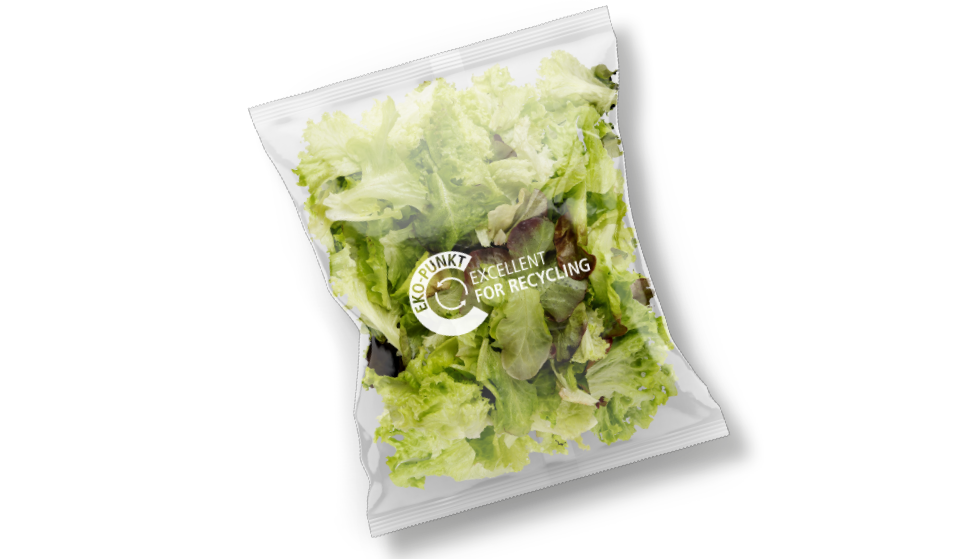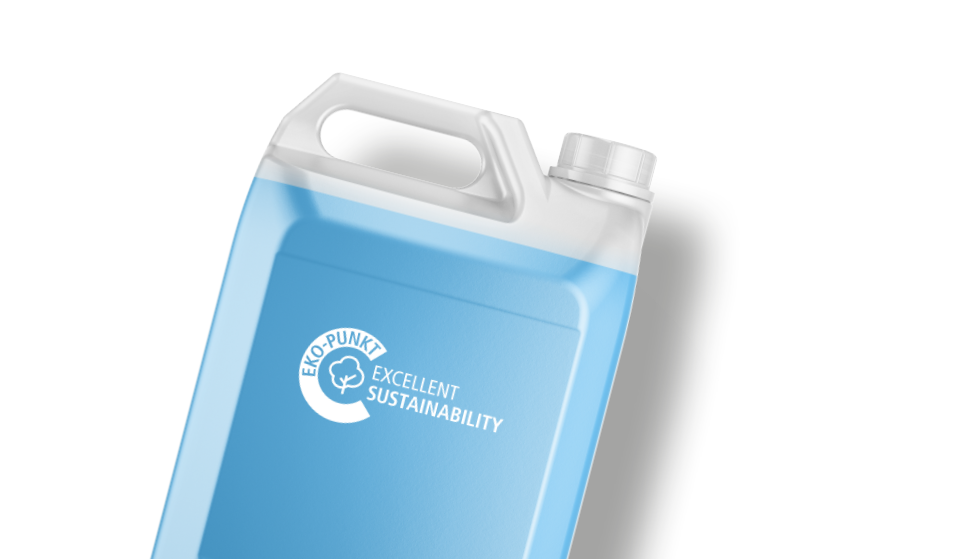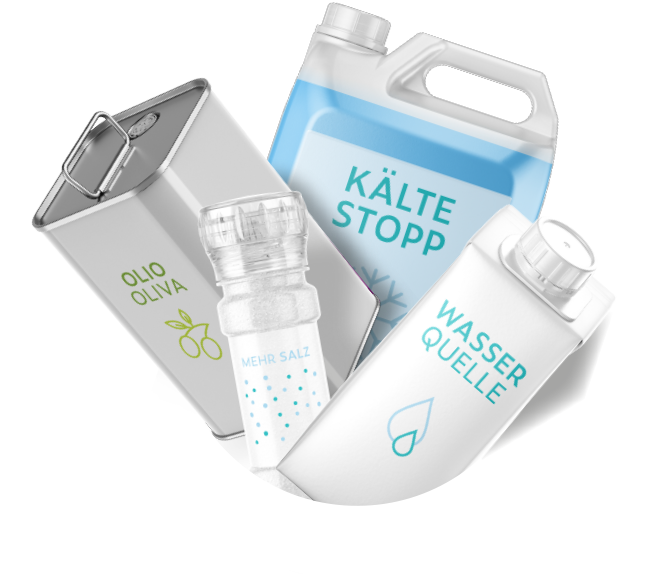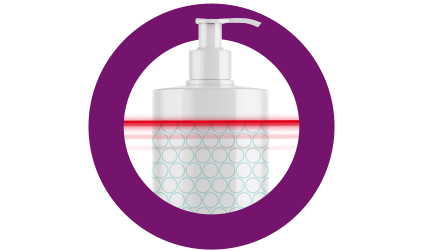Got manufacturer information on hand? Then you can check the recyclability here
Personal Expert Quick Analysis
Recyclability Check >80% According to ZSVR/UBA
Specification Control
Actionable Recommendations
Workload: 1 Day
From just €230 **
Hier finden Sie alle EKO-Punkt-Niederlassungen wahlweise als Karten- oder Listendarstellung. Kontaktinformationen inklusive.
Laboratory Testing of Packaging Recyclability
Sustainability of packaging isn’t always visible at first glance. That’s why we are experts in the second and third look – including near-infrared scanning.
When and why should you test the recyclability of your packaging?
The answer: basically, always. Your packaging should definitely have proven recyclability that meets the minimum standards defined by the Central Packaging Register (ZSVR) and the German Environment Agency (BMU). Only then can you be sure you're on the safe side and have the opportunity for financial relief. Otherwise, higher packaging costs may be on the horizon.
Soon, companies will be required to contribute to a fund if their packaging cannot be easily recycled using existing infrastructure. But even from an ecological standpoint, testing the recyclability of your packaging makes sense. The more recyclable the materials you use, the more you contribute to resource conservation and climate protection
Got manufacturer information on hand? Then you can check the recyclability here
From Concept to Value: Understanding the Importance of Recyclability Testing
From Minimum Standards to Long-Term Viability: Our Offerings and Real Customer Benefits.
From Optical to Chemical-Physical: What Happens in Detail During the Recyclability Testing
“Recyclability testing demands expertise and technology. We have both as part of our service. Our customers appreciate it. Feel free to compare our pricing and performance.”
Dr. Wolf Karras, Sustainability and Ecodesign Specialist
*Optional add-ons available at extra charge // ** All prices are net, plus applicable VAT //
***Use of the seal is permitted for online and marketing purposes only. It may not be printed directly on packaging.
Retail Shelf or Technical Center
For testing purposes, we require the packaging in the exact form in which it is (or will be) placed on the market. Ideally, the packaging should be emptied of any remaining contents — but this is not mandatory.
Loss-Free, Please!
If you empty and clean the packaging beforehand, please make sure not to damage closures or seals in a way that results in material loss. Otherwise, this may lead to inaccurate weight proportions and calculation errors.
It’s All About the Quantity
Where NIR testing is to be performed on operational-scale equipment, sufficient packaging quantities are needed to generate valid data.
Gladly Exactly
If you have clear and meaningful information regarding material specifications, please be sure to include it with your submission.
This greatly facilitates the testing process and helps reduce your costs.
Packaging accounts for a large share of the waste generated in Germany. Mandatory packaging licensing addresses this by ensuring the targeted collection and return of used packaging materials. But that alone is not enough. Optimal recycling begins with the design of the packaging itself – keyword: ecodesign. Ideally, packaging should be designed in such a way that, first, no virgin materials are used in production, and second, it can serve as a source of recyclates after its use.
Improvement of Packaging Recyclability
Together – in addition to the general reduction of unnecessary packaging – these measures contribute to climate protection and reduced resource consumption. And they are essential if the goals of the European Green Deal are to be achieved in the packaging sector. According to the German industry’s voluntary commitment, one million tonnes of recyclates are to be used annually by 2025. To achieve this based on current conditions, the amount of lightweight packaging collected from households would have to multiply – which is neither feasible nor intended. The only way to reach this goal is by improving the recyclability of each and every packaging. But effective recycling begins at home. REMONDIS explains how citizens can separate their waste correctly on remondis-buergerservice.de
To meet European market standards, we recommend and provide recyclability assessments based on EN 13430.
How You Benefit – In Detail
High-Quality Material Analysis by Professionals
Recyclability assessments are performed in certified partner labs, full-scale technical plants, or leading university research centers – ensuring reliable, high-quality results.
In-Depth Know-How
Leveraging the REMONDIS network and our links with major plant engineering stakeholders, we provide expert assessments of what’s technically feasible in recycling.
Revealing Untapped Potential for Enhanced Sustainability
Upon request, we offer tailored suggestions for the use of recyclates and alternative materials to improve your packaging’s sustainability profile – including concrete opportunities for material savings.
Reliable Access to Recyclates
Circular Contracting not only helps assess and improve the recyclability of your packaging – it also gives you direct access to the recyclates you need for your next production run.
Detailed and Verifiable Documentation
You will receive a certificate from us for your documentation and corporate communications. This proof can also be used to apply for financial incentives in accordance with Section 21 of the German Packaging Act (VerpackG).
Certification Seal for Packagings
We provide you with seals that can be printed on your packaging to indicate that it has been tested and is recyclable.
Budget-Friendly Pricing Models
When it comes to pricing, we keep things grounded. With efficient processes and strong synergies across the REMONDIS Group, our assessments come at especially competitive prices.
The assessment or verification of recyclability forms the basis for claiming the benefits of the § 21 VerpackG
Through our recyclability assessment, we help you shape a packaging strategy that’s both compliant and future-ready. By evaluating all relevant criteria, we show you where you stand against the current minimum standard and what improvements you can make now to stay ahead of evolving regulatory expectations.
As proof of the assessment and compliance with applicable standards, we provide corresponding seals that you can apply to your packaging. The type of seal issued depends on the assessment method selected. You can choose from three available options:
For the European market, we recommend an assessment based on EN 13430 and carry it out accordingly.
We’re happy to personally advise you on recyclability assessments.
Send us a non-binding inquiry now
At first glance, the recyclability of packaging is not always visible.
It takes thorough testing to determine whether it meets environmental and regulatory standards.

Assessment According to the Minimum Standard Set by the Central Packaging Register (ZSVR)
This assessment is ideal in cases where manufacturer specifications are missing, or when packaging must be tested for detectability and sortability under real-world conditions at standard recycling facilities.
All tests are conducted in line with the latest minimum standard defined by the Central Packaging Register (ZSVR) and the German Environment Agency (UBA).

Making Your Packaging Future-Ready
Want to go beyond assessing recyclability and actually improve your packaging? Our experts will thoroughly analyze your packaging and suggest concrete improvements – from design adjustments to substituting materials with recyclates or renewable raw materials.
Having your packaging assessed by EKO-PUNKT pays off in more ways than one. Of course, the primary goal is to determine the recyclability of your packaging – giving you planning certainty in terms of compliance with Section 21 of the German Packaging Act (VerpackG). But as with all our services, you also benefit here from the holistic support offered by our Packaging Competence Center. In the end, you don’t just receive useful insights – you hold the key to a fully integrated, genuinely sustainable packaging management solution.
Implementation included.
We are equipped to carry out all tests required to determine the recyclability of packaging. In addition to NIR (near-infrared) tests typically performed in sorting facilities, we also conduct chemical and physical analyses where needed – for example, to identify recycling incompatibilities caused by adhesive labels, silicone components, or foreign plastics. All assessments are carried out in strict accordance with the minimum standard set by the Central Packaging Register (ZSVR) and the German Environment Agency (UBA). Whether a chemical-physical analysis is necessary depends, among other factors, on the availability and quality of information about the packaging. As a general rule: The more complete and meaningful the material specifications provided by the packaging manufacturer, the less effort is required for recyclability testing – and the more cost-effective the process for you as the client. It is therefore worthwhile to supply us with as much qualified information as possible.
Please ensure that the specifications clearly refer to the submitted packaging samples. Tip: Accurate documentation reduces testing effort and lowers your costs.
What is the VerpackG? The German Packaging Act regulates obligations for manufacturers, distributors, and retailers. You can view the complete legal text here
Where can I find the current minimum standard? download here
Our NIR (Near-Infrared) testing meets the highest standards and is conducted using state-of-the-art sorting and detection technology from the REMONDIS Group. The goal of these tests is to determine how specific packaging characteristics affect detectability – that is, the ability of automated systems to identify packaging during sorting. The process simulates what can be accurately recognized via spectrometric detection and what cannot. Packaging that cannot be detected is effectively lost to the recycling process.
Packaging Features Necessitating NIR Detection Analysis
Looking for expert advice on recyclability assessments? We’re happy to support you get in touch with us today








